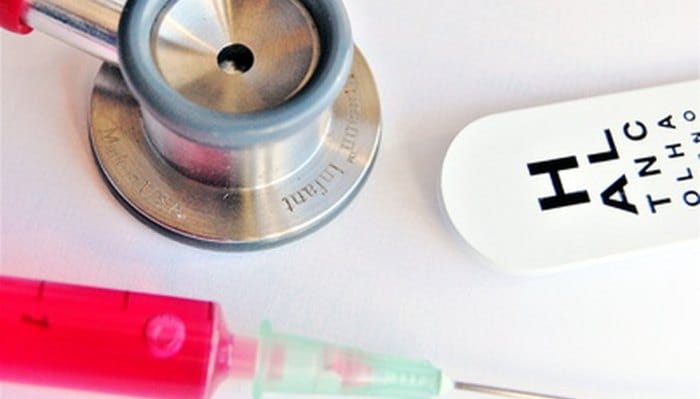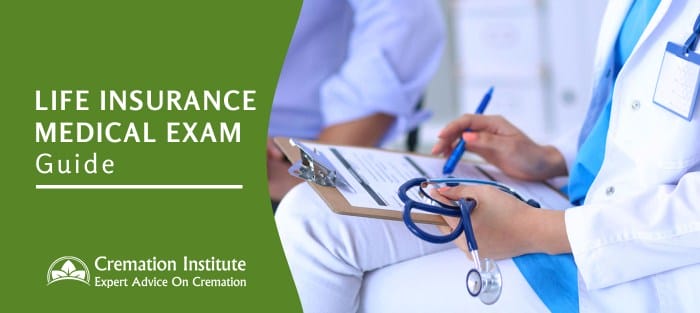Navigating the life insurance medical exam can be a daunting task, but with the right preparation and understanding, you can ensure a smooth and successful process. This comprehensive guide delves into the intricacies of the medical exam, providing valuable tips and insights to help you present yourself in the best possible light.
From understanding the exam process and disclosing your medical history accurately to managing lifestyle factors and communicating effectively with the insurance provider, this guide covers all aspects of the medical exam. Whether you’re a first-time applicant or seeking to optimize your coverage, this resource will equip you with the knowledge and strategies to maximize your chances of securing favorable insurance terms.
Medical History Disclosure

Providing accurate and complete medical history information during a life insurance medical exam is crucial for several reasons. Honesty and transparency are essential in ensuring a fair and accurate assessment of your health and risk profile.
Withholding or misrepresenting medical information can have serious consequences. It may lead to:
- Policy Denial: Your application for life insurance may be denied if the insurance company discovers undisclosed or misrepresented medical information after the policy is issued.
- Increased Premiums: If undisclosed or misrepresented medical information is discovered after the policy is issued, the insurance company may increase your premiums to reflect the higher risk associated with your health condition.
- Policy Cancellation: In some cases, the insurance company may cancel your policy if they find that you intentionally withheld or misrepresented medical information.
To ensure a smooth and accurate medical exam, it’s important to gather and organize your medical records in advance. This includes:
- Medical History: Compile a detailed list of your medical history, including past illnesses, surgeries, hospitalizations, and ongoing medical conditions.
- Prescriptions: Make a list of all prescription medications you are currently taking, including the name, dosage, and frequency.
- Test Results: Collect any recent test results, such as blood tests, X-rays, or MRI scans.
- Specialist Reports: If you have seen any specialists, such as cardiologists or oncologists, gather their reports and findings.
By providing accurate and complete medical history information, you are helping the insurance company assess your risk profile accurately and fairly. This ensures that you receive a policy that meets your needs and provides the financial protection you and your loved ones deserve.
Medications and Supplements

Providing accurate information about medications and supplements taken regularly is essential for a life insurance medical exam. Certain medications and supplements can affect test results, potentially leading to incorrect assessments of your health.
It is crucial to disclose all medications and supplements, whether prescribed, over-the-counter, herbal, or recreational. Be sure to mention the dosage, frequency, and duration of use.
Examples of Medications and Supplements
- Prescription Medications: Blood thinners, antidepressants, blood pressure medications, cholesterol-lowering drugs, diabetes medications, and thyroid medications.
- Over-the-Counter Medications: Pain relievers, allergy medications, sleep aids, and antacids.
- Herbal and Natural Supplements: St. John’s wort, ginkgo biloba, ginseng, and garlic supplements.
- Recreational Drugs: Marijuana, cocaine, heroin, and amphetamines.
Lifestyle Factors

Your lifestyle choices can significantly impact your health and the results of your life insurance medical exam. Making positive changes to your lifestyle can not only improve your overall well-being but also potentially lower your insurance premiums.
Smoking
Smoking is one of the worst things you can do for your health and your life insurance rates. Smokers pay significantly higher premiums than non-smokers because they are at an increased risk of developing serious health problems, such as heart disease, cancer, and respiratory illnesses.
If you smoke, quitting is the single most important thing you can do to improve your health and lower your insurance costs.
Alcohol Consumption
Excessive alcohol consumption can also negatively impact your health and your life insurance rates. Drinking too much alcohol can increase your risk of liver disease, heart disease, and certain types of cancer. It can also lead to accidents and injuries.
If you drink alcohol, do so in moderation. The recommended limit for men is two drinks per day and for women is one drink per day.
Physical Activity
Regular physical activity is one of the best things you can do for your health and your life insurance rates. Exercise helps to maintain a healthy weight, reduce your risk of chronic diseases, and improve your overall well-being. Aim for at least 30 minutes of moderate-intensity exercise most days of the week.
Weight and Body Mass Index (BMI)

Weight and Body Mass Index (BMI) are crucial factors that insurance companies consider when assessing an individual’s health and life expectancy. A higher weight and BMI are often associated with an increased risk of chronic diseases, such as heart disease, stroke, type 2 diabetes, and certain types of cancer.
This increased risk can lead to higher insurance premiums.
Maintaining a Healthy Weight and BMI
Maintaining a healthy weight and BMI is essential for overall health and well-being, as well as for securing favorable insurance rates. Here are some strategies to help you achieve and maintain a healthy weight:
- Balanced Diet: Consume a balanced diet rich in fruits, vegetables, whole grains, and lean proteins. Avoid processed foods, sugary drinks, and excessive amounts of unhealthy fats.
- Regular Exercise: Engage in regular physical activity, such as brisk walking, swimming, cycling, or team sports, for at least 30 minutes most days of the week.
- Portion Control: Be mindful of portion sizes and avoid overeating. Use smaller plates and bowls, and focus on eating slowly and savoring each bite.
- Stress Management: Manage stress effectively through techniques like meditation, yoga, or spending time in nature. Stress can lead to unhealthy eating habits and weight gain.
- Adequate Sleep: Prioritize getting enough sleep, as sleep deprivation can disrupt hormones that regulate appetite and weight.
Addressing Weight-Related Concerns with the Insurance Provider
If you have concerns about your weight or BMI and its impact on your insurance rates, it’s essential to address them with your insurance provider. Here are some steps to take:
- Be Honest: Provide accurate information about your weight and BMI during the application process. Misrepresenting this information can lead to complications later on.
- Request a Review: If you believe your weight or BMI is not accurately reflected in your insurance rates, request a review of your application. Provide any relevant medical information or documentation that supports your case.
- Consider Lifestyle Changes: If you are overweight or obese, consider making lifestyle changes to improve your health and potentially lower your insurance rates in the long run.
Fasting and Dietary Restrictions

Before your life insurance medical exam, you may be required to follow specific fasting and dietary restrictions. These guidelines aim to ensure accurate test results and a smooth examination process.
In general, you should avoid heavy meals and excessive alcohol consumption in the days leading up to the exam. Additionally, certain foods and beverages can interfere with test results and should be limited or avoided altogether.
Foods and Beverages to Avoid or Limit
- Fatty Foods: High-fat foods, such as fried or greasy dishes, can affect cholesterol levels and interfere with blood test results.
- Sugary Foods and Beverages: Consuming large amounts of sugar can impact glucose levels, potentially affecting blood sugar tests.
- Red Meat and Organ Meats: These foods are high in purines, which can increase uric acid levels and distort kidney function test results.
- Alcohol: Alcohol consumption can dehydrate the body and alter liver function tests.
- Caffeine: Excessive caffeine intake can elevate blood pressure and heart rate, potentially affecting cardiovascular test results.
It’s important to follow these dietary guidelines as they help ensure accurate test results and provide a clear picture of your overall health status. Your insurance provider or healthcare professional will provide specific instructions regarding fasting and dietary restrictions before the exam.
Communicating with the Insurance Provider

Intro ParagraphBuilding a transparent and cooperative relationship with the insurance provider is crucial for a smooth medical exam experience. Effective communication can help address any concerns or doubts promptly, leading to a seamless process.
Importance of Open and Clear Communication
- Open and transparent communication fosters trust and mutual understanding between the applicant and the insurance provider.
- Effective communication ensures that all relevant information is accurately conveyed to the insurance provider, leading to a more precise assessment of the applicant’s health status.
- Clear and concise communication minimizes the risk of misunderstandings or misinterpretations, leading to a more efficient and timely completion of the medical exam process.
Tips for Effective Communication
- Be Prepared: Before the medical exam, thoroughly read and understand the insurance policy and the medical exam requirements.
- Ask Questions: Don’t hesitate to ask questions about the medical exam process, the policy terms, or any concerns you may have. The insurance provider is there to assist and clarify.
- Provide Accurate Information: Honesty is essential. Provide accurate and complete information during the medical exam and in the application forms. Misrepresentation or omission of information can have severe consequences.
- Clarify Doubts: If you don’t understand a question or instruction during the medical exam, ask for clarification. Don’t assume or guess.
- Maintain Records: Keep copies of all correspondence, forms, and documents related to the medical exam and the insurance application. This can be helpful in case of any disputes or queries in the future.
Resolving Issues or Disputes
- Open Communication: If you have any concerns or disputes regarding the medical exam process or the insurance policy, communicate your concerns promptly and openly with the insurance provider.
- Document Everything: Keep detailed records of all communication, including dates, times, and the content of the discussions. This documentation can be crucial in resolving disputes.
- Seek Mediation: If the dispute cannot be resolved through direct communication, consider seeking mediation or arbitration services. These services can help facilitate a resolution without resorting to legal action.
Post-Exam Care

After the life insurance medical exam, you can expect a follow-up process involving the insurance provider and, in some cases, your doctor. Here’s what you can anticipate and how to manage your expectations during this period.
In some instances, the insurance provider may require additional medical tests or information to assess your health status more accurately. If necessary, they will contact you or your doctor to schedule these follow-up procedures.
Receiving Exam Results and Insurance Decision
The timeframe for receiving your exam results and the insurance decision can vary depending on the insurance provider and the complexity of your case. Typically, it takes a few weeks to several months for the insurance company to review your medical information, assess your risk profile, and make a decision regarding your policy.
During this waiting period, it’s important to maintain a positive outlook and avoid unnecessary stress. Remember that the insurance company is evaluating your health status to determine the appropriate policy terms and premium rates. While waiting, focus on maintaining your overall health and well-being.
Managing Expectations
It’s crucial to manage your expectations and understand that the insurance company’s decision may not always be in line with your initial expectations. The insurance provider assesses your health status based on various factors, including your medical history, lifestyle, and overall risk profile.
They may offer different policy options or terms based on their assessment.
If you have any concerns or questions regarding the insurance decision, don’t hesitate to contact the insurance provider or your insurance agent. They can provide clarification and explain the rationale behind the decision.
Final Thoughts

Remember, the life insurance medical exam is an opportunity to demonstrate your commitment to your health and well-being. By following the guidance provided in this comprehensive guide, you can confidently navigate the process, ensuring that your application is presented in the most favorable light.
With careful preparation and a proactive approach, you can increase your chances of securing the coverage you need to protect your loved ones and secure your financial future.
Frequently Asked Questions
What is the purpose of a life insurance medical exam?
A life insurance medical exam is conducted to assess your overall health and lifestyle factors that may impact your life expectancy. This information helps the insurance company determine the level of risk associated with insuring you and set appropriate premium rates.
What should I do to prepare for the medical exam?
In the days leading up to the exam, maintain a healthy diet, get adequate sleep, and manage stress. Avoid alcohol and excessive caffeine consumption. If you have any medical conditions or take medications, be prepared to provide accurate and complete information to the examiner.
What tests are typically conducted during the medical exam?
The medical exam typically includes blood pressure measurement, blood tests (including cholesterol and glucose levels), urine analysis, and a physical examination. Additional tests may be ordered based on your age, health history, and other factors.
How can I improve my lifestyle habits to enhance my insurance rates?
Maintaining a healthy weight, engaging in regular physical activity, and adopting a balanced diet can positively impact your overall health and potentially lower your insurance premiums. Quitting smoking and reducing alcohol consumption can also have a positive effect on your insurance rates.
What is the significance of disclosing my family medical history?
Disclosing your family medical history allows the insurance company to assess any potential genetic risks that may affect your health. This information helps them determine the level of risk associated with insuring you and set appropriate premium rates.



